Welcome to the 214th Carnival of Personal Finance! Each week the carnival travels around the blogosphere, rounding up the best personal finance posts. This week’s theme is POTUS — the Presidents of the United States!
Now I’m not the biggest history nerd you’ll ever meet, but I do have a soft-spot for things that are presidential (just ask my brain’s vast knowledge of every single episode of The West Wing). To get yourself into the mood of this carnival, go ahead and listen to Jonathan Coulton’s song “The Presidents” (some slight language, lyrics can be found here) and then dive right in!
Watch out for my picks for Editor’s Choice, which can be found in bold!

George Washington, 1789-1797
Washington could not tell a lie, and Simon has a list of 8 Things That Do Not Affect Your Credit Score. (Sure, those don’t line up perfectly… but I didn’t want to get your hopes up that any of these were going to!)
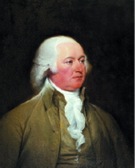
John Adams, 1797-1801
The first president to go to college in the United States! (Harvard, class of 1755.) Studenomist is also a fan of college: he shows his love and the financial benefits of education in I Love College – 4 Financial Benefits of Being a College Student.

Thomas Jefferson, 1801-1809
TJ (as I like to call him) bought a big chunk of land with the Louisiana Purchase. Maybe he should have put that bad boy on a credit card and wracked up some rewards points! (What reward would you get with all those points – California?) Maybe Jim Wang can tell us, as he explores the 8 Reasons Credit Cards Beat Debit Cards.
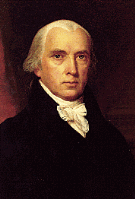
James Madison, 1809-1817
If you’re a fan of how James Madison kicked the Brits out of the US in the War of 1812, you’ll love how Chris is kicking debt in How to Pay Off Debt: 3 Methods Examined.
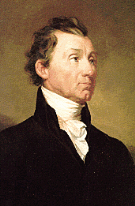 James Monroe, 1817-1825
James Monroe, 1817-1825
The Monroe Doctrine pretty much told Europe to keep their paws off of America. You can tell financial institutions to keep their paws off your money if you take some tips from Matthew Paulson in Fighting Increased Fees in Your Finances.
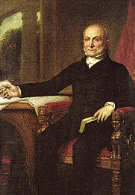
John Quincy Adams, 1825-1829
It’s hard enough trying to fill the Presidential shoes of your father, but it’s especially hard when your father was known as an all-around frugal guy who had his act together. If he didn’t quite learn it from dear old Dad, maybe RC can help John Q. out with Basic Money Management — Creating and Living on a Budget.
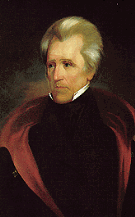 Andrew Jackson, 1829-1837
Andrew Jackson, 1829-1837
AJ had a real problem with banks, especially banks with power. Miss M doesn’t have a problem with Smarty Pig, exactly, but she wants you to know what you’re getting into – Smarty Pig: Great Rates with a Catch.
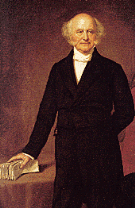 Martin Van Buren, 1837-1841
Martin Van Buren, 1837-1841
What is a Spending Plan? It’s what Van Buren didn’t have to get him out of the Panic of 1837, and it’s what cost him the reelection.
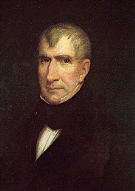 William Henry Harrison, 1841
William Henry Harrison, 1841
John and Kate Plus 8 have nothing on this guy — he had 10 children survive to adulthood! Jeff Rose brings us Divorce and Financial Planning with John and Kate.
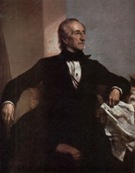 John Tyler, 1841-1845
John Tyler, 1841-1845
Tyler got Texas, but not a second term. What are you missing? The Weakonomist can tell you about the Four Features Missing From Your Retirement Accounts.
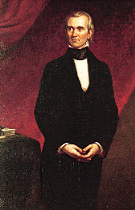 James Knox Polk, 1845-1849
James Knox Polk, 1845-1849
Polk was responsible for the second-largest expansion of the nation’s territory. Before you go and start trying to expand your territory, take some tips from FMF about The Cost of a New Home.
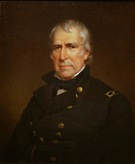 Zachary Taylor, 1849-1850
Zachary Taylor, 1849-1850
Hey Taylor, you were born in Virginia! What do you think about this new program where Virginia Offers Small Loans to State Employees that Sun told me about?
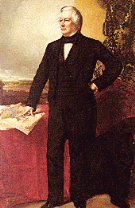 Millard Fillmore, 1850-1853
Millard Fillmore, 1850-1853
Fillmore had a bit of a knack for dying parties. He served on the New York State Assembly on the Anti-Masonic ticket, and later he was the last Whig President. It just shows that you can’t always count on your political party to be there as you get older. Michael B. Rubin has Five Reasons Not to Count on An Inheritance in Your Retirement Plan, as well. Well, what can you count on these days?
 Franklin Pierce, 1853-1857
Franklin Pierce, 1853-1857
Poor guy often finds a place on lists of America’s Worst Presidents. Hey, at least he didn’t steal a cart full of stuff from Wal-Mart, or rip off a bunch of people in my city like the people in this article by Jeremy Simon: Scammers speak about identity theft.
 James Buchanan, 1857-1861
James Buchanan, 1857-1861
He thought secession from the union was illegal, but he also thought going to war to stop states from seceding was illegal. Sometimes, you’ve just got to do things the way you see fit, I guess. Brad Chaffee explains that well in Baby Emergency Fund — Do It Your Way!
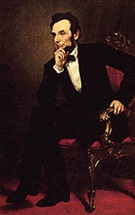 Abraham Lincoln, 1861-1865
Abraham Lincoln, 1861-1865
We can thank Lincoln for a lot of things, including income taxes! Yes, the nation’s first income tax was levied on his watch, in 1862. Well, you win some, you lose some (and then you take in a play). Since we’ve still got to deal with income taxes, Kevin can show you How to Prepare Your Finances for Higher Taxes.
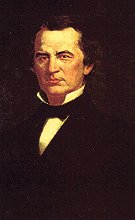 Andrew Johnson, 1865-1869
Andrew Johnson, 1865-1869
You get what you pay for, America! Andrew Johnson barely survived impeachment, a lesson for the future that we (sort of) learned. Protect yourself from bad products and services by remembering Why the Lowest Price is For Losers, by MoneyNing.
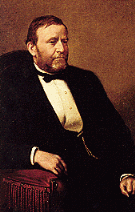 Ulysses Simpson Grant, 1869-1877
Ulysses Simpson Grant, 1869-1877
General Grant was a war hero in the Civil War, but he sort of jumped the shark as President Grant. What do you do When Personal Finance Jumps the Shark? Modern Gal can help you out there!
 Rutherford Birchard Hayes, 1877-1881
Rutherford Birchard Hayes, 1877-1881
Hayes ended US Reconstruction — you can prevent trouble like that by knowing what you’re getting into when you go to refinance your house. In fact, you can really avoid trouble if you learn before you even buy a house! Take it from Dave: Refinancing: What You Need to Know (Even Before You Own)
 James Abram Garfield, 1881
James Abram Garfield, 1881
This guy lived for two months after being shot in an assassination attempt. What would you do if you were injured, but not killed? Would you have enough insurance to cover everything? Henry Stern gives an intro to critical insurance in Critically Speaking.
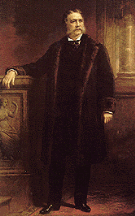 Chester Alan Arthur, 1881-1885
Chester Alan Arthur, 1881-1885
Is it sad that the reason I know he’s the 21st President is because of the movie Die Hard 3? Oh well! Hey, you know who is bad-ass like John McClane? Warren Buffet. Alexg shows us a video where Warren Buffet Gives Advice To Girl Scouts (while eating a Blizzard).
 Grover Cleveland, 1885-1889
Grover Cleveland, 1885-1889
The railroad companies, with their shady practices and tricky math, were not big fans of Grover Cleveland. Darwin can help you avoid any tricky math with Median vs. Mean: Know the Difference or Risk Being Manipulated.
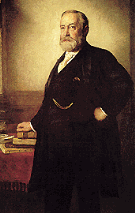 Benjamin Harrison, 1889-1893
Benjamin Harrison, 1889-1893
It just wasn’t meant to be with Benjamin Harrison — one term and then the country elected Grover Cleveland again. It’s the same thing for J. Money: he ditched his savings bonds and put the money in his trusty Roth IRA. Read about it at Bye Bye Bonds, Hello Roth IRAs.
 Grover Cleveland, 1893-1897
Grover Cleveland, 1893-1897
For Grover Cleveland’s second term, we’ll throw in a repeater for another president. This should go under Obama, but I’ve got more than one thing for our current Commander-in-Chief. Let Andy tell you the basics about Obama’s 2009 Robin Hood Health Care Reform Plan.
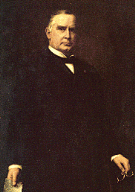 William McKinley, 1897-1901
William McKinley, 1897-1901
McKinley signed the Gold Standard Act in 1900, ending the practice of exchanging silver for gold in US currency. How far we’ve come! James has been living entirely without cash for over a year now, and he’ll show you how to do it in his video, the Do’s and Don’ts of Living Without Cash.
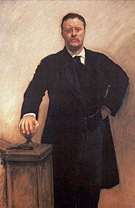 Theodore Roosevelt, 1901-1909
Theodore Roosevelt, 1901-1909
Teddy was a hunter, but he was also known for having a great respect for those in the animal kingdom. I have to wonder if he would have shot some of the animals that vh describes in Other People’s Pets!
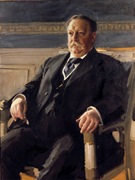 William Howard Taft, 1909-1913
William Howard Taft, 1909-1913
Taft converted from President to Chief Justice of the United States. On a barely-related note, LGBT couples who have one partner stay home with a child might consider doing a Roth conversation when income is low. Helen explains in No aversion to conversion: IRA to Roth.
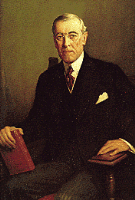 Woodrow Wilson, 1913-1921
Woodrow Wilson, 1913-1921
The only President to hold a PhD, Wilson was a rather smart fellow. I think he would have appreciated the in-depth review Chance gives in his CommonCents 2.0 Review.
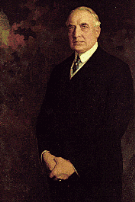 Warren Gamaliel Harding, 1921-1923
Warren Gamaliel Harding, 1921-1923
Harding was all about this idea of “a return to normalcy.” For most people, normalcy probably isn’t such a great idea — like these tips from Ray on How to Ensure You Can (Not) Retire.
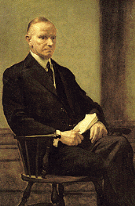 Calvin Coolidge, 1923-1929
Calvin Coolidge, 1923-1929
Coolidge was a champion of the middle class. Middle class couples can take a lesson from Mr. Credit Card on Leveraging Reward Credit Cards As A Couple.
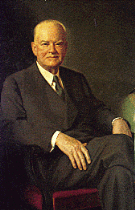 Herbert Clark Hoover, 1929-1933
Herbert Clark Hoover, 1929-1933
Poor Hoover! He’s mostly known for not fixing the Great Depression. You could give your spare change to him, but he no longer needs it. Instead, check out these 7 Things to Do With Your Spare Change by Matt B.
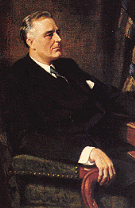 Franklin Delano Roosevelt, 1933-1945
Franklin Delano Roosevelt, 1933-1945
FDR’s New Deal was designed to lower unemployment by getting the American people working on public service projects. You can start creating you own New Deal with Mr. NtJS in FPU Week 11: Working in your Strengths.
 Harry S. Truman, 1945-1953
Harry S. Truman, 1945-1953
Truman took over after the death of one of America’s most beloved President’s. History thinks he handled it pretty well, and he’s often regarded as one of America’s best presidents. Would someone be able to take over for you if you died? Learn from how Money Blogger keeps a binder of information for his wife, in case she ever has to take over, in Preparing Your Financial Information for the Inevitable.
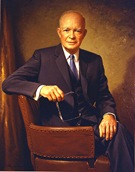 Dwight David Eisenhower 1953-1961
Dwight David Eisenhower 1953-1961
We Like Ike! Would you be ready if your nation called upon you the way it happened to Eisenhower? Paul @ FiscalGeek might be able to help, if you can conquer his 10 Interview Questions You Better Be Ready to Answer.
 John Fitzgerald Kennedy, 1961-1963
John Fitzgerald Kennedy, 1961-1963
Kennedy had some pretty big goals, what with that whole “man on the moon” thing. But D4L warns that you should Never Confuse Desires With Goals!
 Lyndon Baines Johnson, 1963-1969
Lyndon Baines Johnson, 1963-1969
Johnson had it rough after Kennedy’s death, especially with the war in Vietnam. Keep things simple with PT Money and his 5 Take-a-ways of Personal Finance.
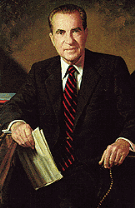 Richard Milhous Nixon, 1969-1974
Richard Milhous Nixon, 1969-1974
Nixon had a pretty good answer to the question Why Retire Early, but thankfully most of us don’t have to step down from our jobs like that. Marie examines her reasons for wanting (or not wanting!) early retirement.
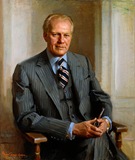 Gerald Rudolph Ford, 1974-1977
Gerald Rudolph Ford, 1974-1977
Ford pardoned Nixon — what a nice guy! Matt Jabs issued a Twitter-based pardon to Suze Orman after an interesting conversation with her in Pay off Credit Cards VS Build Emergency Fund Savings – Me VS Suze Orman.
 James Earl Carter, Jr., 1977-1981
James Earl Carter, Jr., 1977-1981
Jimmy Carter, when he wasn’t being chased by evil rabbits (seriously), spent a little time establishing the Department of Education. I think he would like this piece, The College Student’s Guide to Credit Cards by DR.
 Ronald Wilson Reagan, 1981-1989
Ronald Wilson Reagan, 1981-1989
Hey, isn’t this the guy that took the solar panels off the top of the White House? What’s up with that? Oh well. At least Kyle’s got some healthy Money Saving Meals for us, so that we can mourn the loss of the White House solar panels with some comfort food!
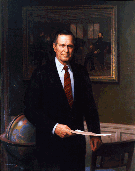 George Herbert Walker Bush, 1989-1993
George Herbert Walker Bush, 1989-1993
Why does George Bush Senior get the Personal Finance Mad Lib by Debt Ninja? Because I was two years old when he took office, so I don’t know a darn thing about his presidency. So fill in the blanks!
 William Jefferson Clinton, 1993-2001
William Jefferson Clinton, 1993-2001
Is it uncouth of me to pair up Bill Clinton with the post Sex and the Wallet by Dr. Faith? Maybe, but who else am I going to put it with? Explore the costs of sex in this post — maybe she should have included the cost of cigars and blue dresses?
 George Walker Bush, 2001-2009
George Walker Bush, 2001-2009
I don’t want to get into political commentary here (it’s not too late for that, right?), but which President do you think of when we talk about fixing the mistakes of a parent? Anyway, Single Guy is wondering Do You Fix Your Parent’s Financial Problems?
 Barack Hussein Obama, 2009-
Barack Hussein Obama, 2009-
The first president to Tweet! You can debate whether or not his tweeting and other tech-savvy skills helped him win the election, or you can just Use Twitter to Find a Job yourself, with a little help from MLR!
I make no claims as to the veracity of any of the statements about the Presidents in this carnival. Please do not quote me as a source of anything, as I am neither a historian, nor particularly concerned with anything other than presenting good personal finance articles and being funny. Images are official portraits that are in the public domain.
Be sure to check it out next week on Monday, July 27, 2009 when the carnival will be hosted at Good Financial Cents! Get information about submitting to or hosting the carnival at the Carnival of Personal Finance homepage.
